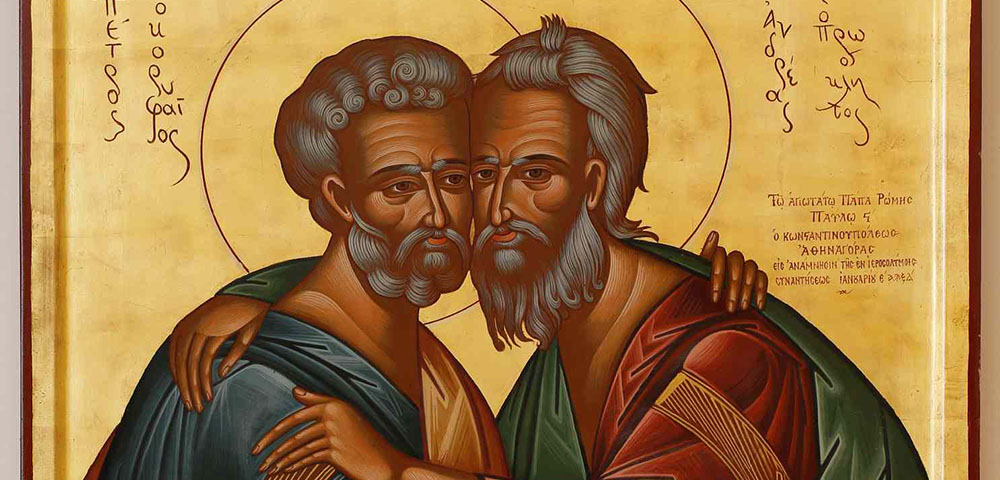Array
(
[0] => 60761
)
book: [60761] (reading_id: 310969)bbook_id: 60761
The bbook_id [60761] is already in the array.
No update needed for sermon_bbooks.
I begin with a word of thanks to your Rector for his invitation to preach here in this historic church today on this Sunday in the Week of Prayer for Christian Unity.
This is an invitation that has humbled me but is one I am privileged to accept. My prayer is that I will be faithful to what is asked of me and that my words to you will direct you to the Lord Jesus Christ in whom we all are one.
In his two letters to the Corinthians Paul knew the people to whom he was writing.
He knew his readers and hearers would be skilled in the conventions and practice of contemporary public oratory. That is why he deployed those techniques himself with such immense passion in what he wrote to them. In today’s portion of his writing from the Epistles we see Paul, the great biblical master of rhetoric, deploying his skills to the full.
He was writing to various groups of Christians in Corinth who, though they were supposedly part of one church, were deviating from their higher loyalty to Christ.
Some of them were saying that ‘I belong to Cephas’, others, ‘I belong to Apollos’, whilst others, ‘I belong to Paul’ and so on. The consequence of all this was that they were, in effect, dividing the church in which they should have all been one.
Paul could see how wrong this was. And he could see how it would, if not checked, lead the church into serious trouble further down the line. The leaders of these groupings should have been helping the faithful in their gatherings. Their task should have been to point through consistent preaching and by faithful living, to the Christ who was their saviour. No Christian pastor or leader should ever gather around them a cosy coterie of faithful eclectics.
From Paul’s writings we can intuit that the differences might well have been of opinion and viewpoint, practice and prescription. We can’t be precise but we can be sure that if it caused Paul to write in the way he did that the trouble at Corinth was getting pretty serious. Sad it is to say that we’re not so very far from the same sort of situation today.
Were he to be addressing current Anglicanism, Paul might well feel he has to say something like this, “I hear some of you say you ‘belong to Archbishop Akinola’, and that others of you say you ‘are for Katherine’ and that others of you ‘are Rowan’s people’.”
In other words Paul would be taking us to task right now. As Anglicans, Episcopalians, or more fundamentally as Christian believers, there is no alternative option available to us.
We must point to the one true God. The one true God who in Christ rescued us from the sinfulness of our frail humanity with all its tendencies to negativity and divisiveness.
It is to Christ where our allegiance must hold and must rise above any temptation to institutional wrangling within an already fractured denominationalism. There must be no wavering from this absolute.
I don’t know if it’s the same here in the USA, but in the Salvation Army where I come from in Scotland, it’s the case that whenever there is applause for a speaker at a gathering, or whenever a vote of thanks is being given at some event or other, individuals raise their right forefinger before them. It is a wonderful image and one that I find I am adopting. Whenever praise or thanks is being given to someone or for something the raised forefinger redirects our attention away from the human to the One to whom all praise is due. To the Lord who makes us one. Directing attention to the Lord Christ makes all rivalries defunct.
My reading of this scripture suggests that Paul and Apollos actually got on quite well, though their followers seemed to want to make them into competing teachers. ‘Can Christ be divided?’ Paul asks rhetorically. ‘Was it me, Paul, who was crucified for you?’ he asks. ‘Were you baptised into my name?’ he continues. To each question the answer is the same, “most definitely not”.
And at each answer the right forefinger might go up, pointing away from ourselves. Directing our gaze to focus upon the unity that we all share in Christ.
So then, our mind must be set upon Christ who is above all that we are and fail to become and who, at the same time, judges our supine individualising factionalism.
Human wisdom had divided Paul’s audience. To counter this Paul shares divine wisdom by reminding them of who it is to whom they belong, even if in passing he mischievously feigns a weakness in eloquence!
Paul’s divine wisdom comes to you and to me as a wake-up call. Sad it is that worldwide Anglicanism is so riven by different factions today. Would that we could be a beacon of unity to other denominations. Not that they should come and join us but rather that they should see us pointing away from ourselves and towards the one true Lord in whom all things live and move and have their being.
Amen.


